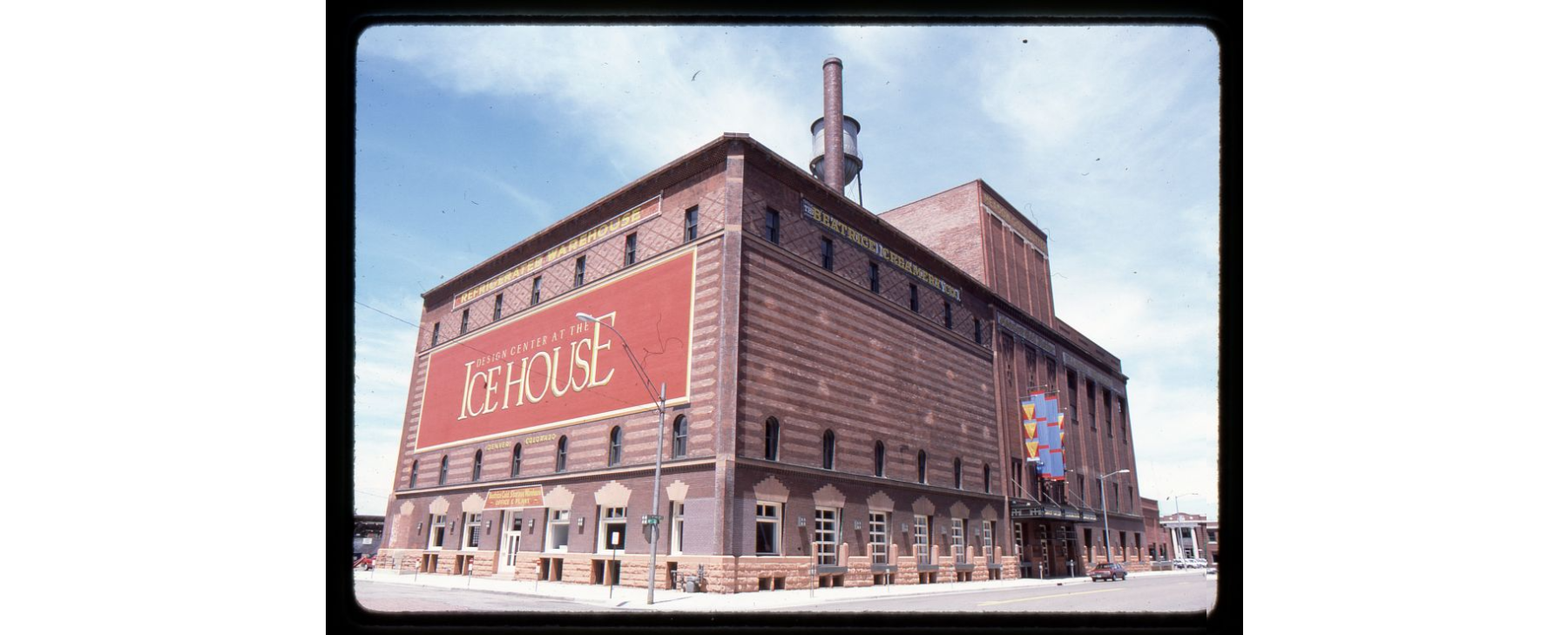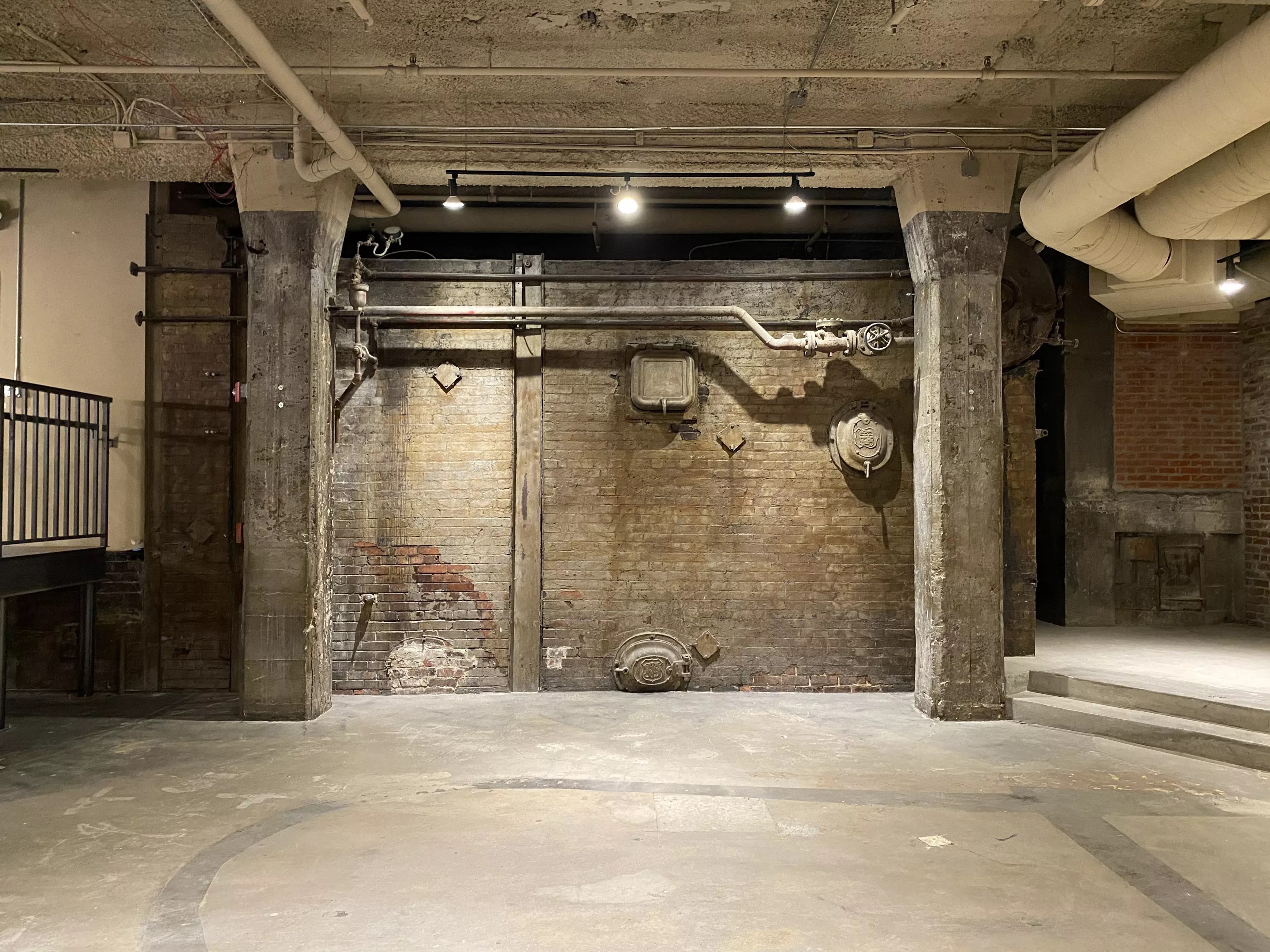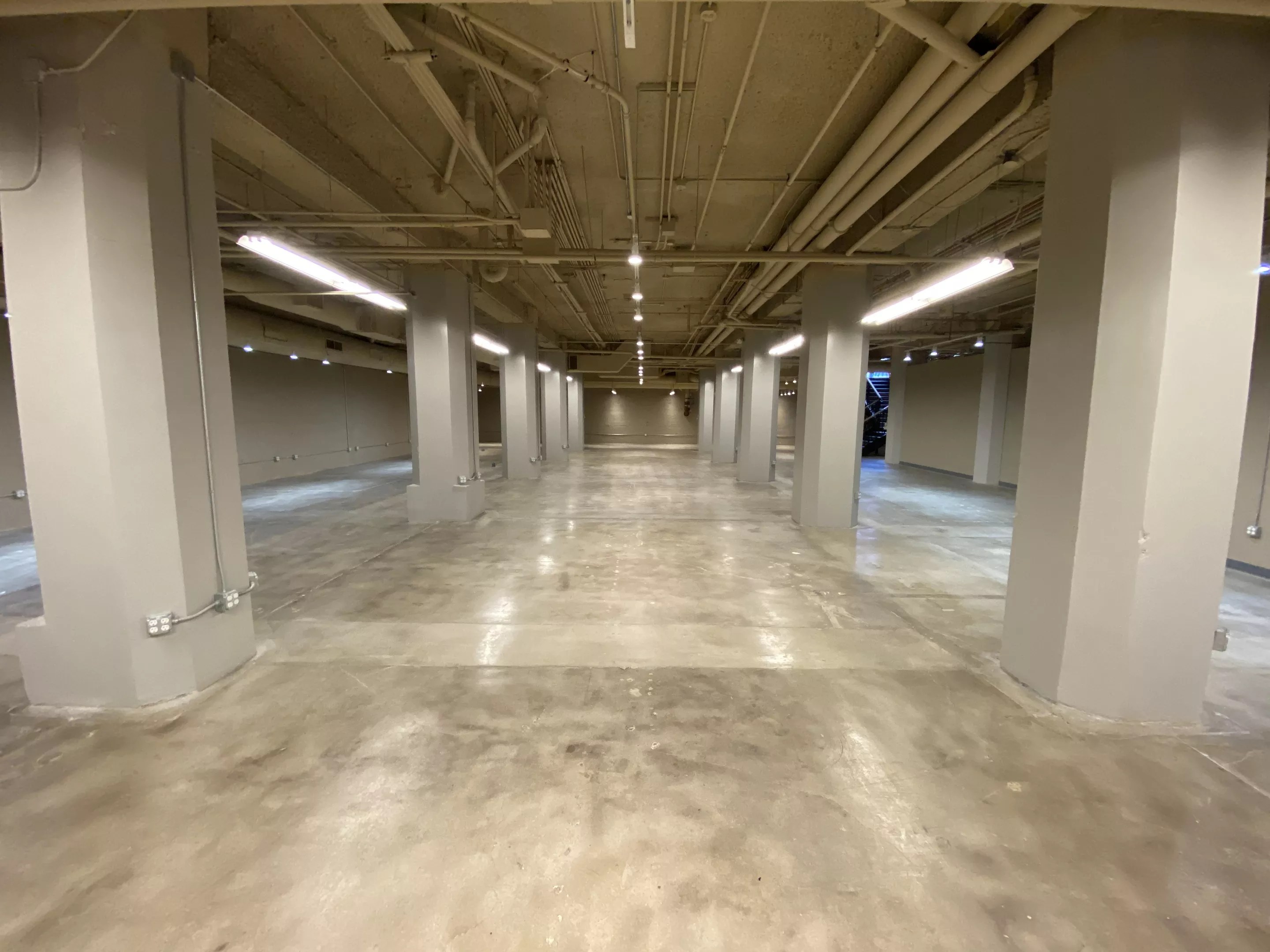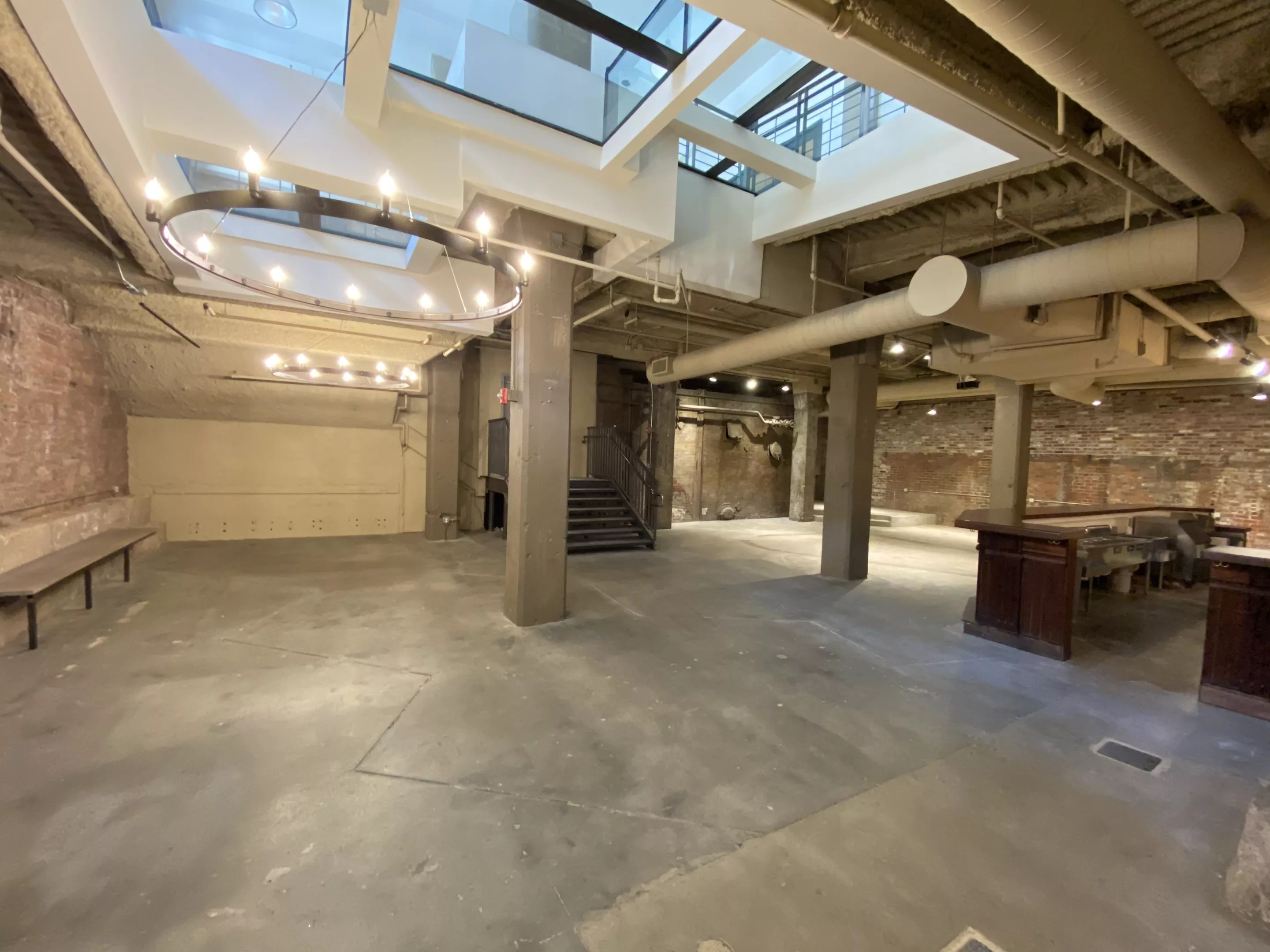
Courtesy of History Colorado

Audio By Carbonatix
On May 2, just before a planned City of Denver licensing hearing, two entrepreneurs who had hoped to establish an electronic dance music club in the basement of the IceHouse pulled their application.
For partners Ryan Simonds and Jonathan Trahan, opposition from residents of the IceHouse, a building at 1801 Wynkoop Street that was turned into condos decades ago, became too intense to fight.
“At the end of the day, we want to have a positive, collaborative relationship with our neighbors,” says Ryan Simonds, who’d planned to open Kulture Music Hall in the 11,400-square-foot space. “With so much opposition, we really didn’t see that happening. We didn’t want to be in a situation where down the road we’re continuing to battle with people who don’t want us to be here.”
Simonds and Trahan are still eager to open their Kulture Music Hall, but in a more welcoming space. And that leaves the IceHouse in need of a basement tenant.

The IceHouse basement still has some of its original elements.
Courtesy of James Cox
The IceHouse was constructed in 1903 as the headquarters for the Littleton Creamery, replacing its offices at 18th and Market streets. The company, founded in 1886 by J.D. Hill and I.S. Morse, was a wholesale vendor of butter, cheese and cream, as well as dairy apparatus and supplies, according to a 1985 application to place the building on the National Register of Historic Places. It also had a cheese factory in Sedalia.
Littleton Creamery used the downtown structure for cold storage of dairy products, as well as for the company’s administration, manufacturing and distribution activities. The basement was devoted to butter production.
In 1912, Nebraska-based Beatrice Creamery acquired Littleton Creamery. It soon made additions to what officially became known as the Littleton Creamery/Beatrice Foods Cold Storage Warehouse, increasing part of the building to eight stories.
“At the time of its final addition, it was the largest cold storage facility in the Rocky Mountain region, with 1.2 million cubic feet of cold storage,” reads the historic register application. Beatrice Creamery continued using the building as a cold-storage facility until 1979.

Two music entrepreneurs wanted to turn this space into an EDM club.
Courtesy of James Cox
In the 1980s, Dana Crawford, the developer of Larimer Square, partnered on a project to renovate the building for $5 million and turn it into condos, as well as commercial space. ”Abandoned as a cold storage facility in 1979, the project started in the winter of 1984. Since the windows were broken out, the building had literally frozen,” project manager Don McKee told the Chicago Tribune in 1986.
The framing of the five-story building is heavy timber and the exterior thick brick, with sandstone walls inside. Crawford and company were able to preserve the gigantic chimney flue that ran from the basement up to the eighth-story roof; they also kept the original wooden stairs.
This was one of the first big condo projects downtown, and the ninety units that made up the Ice House Lofts sold quickly. The first-floor retail space filled, too; Rodizio Grill has been a longtime tenant, and the Icehouse Tavern now occupies a second restaurant spot.
A wide range of clubs have leased the basement over the years. First came Shivers, a bar and restaurant; followed by Sevilla, a salsa club; Chrome, a nightclub; and Krash, another nightclub that featured an ice luge for shots. But after Krash crashed, the basement remained without a tenant for about a decade, until Thermo Companies, which had bought the IceHouse in the ’90s, decided to start its own venture in 2017. After forming the Boiler Room LLC, Thermo brought on James Cox to head up the project.
“I was introduced to a manager of Thermo and asked if I could open a co-working/speakeasy/private event/coffee shop business in the space since it had been vacant and neglected for such a long time,” Cox recalls. “Thermo provided the space, and I would do all the work.”
The basement was in dire shape, he recalls, with “leaks, floods, cables hanging from the ceiling.” Cox worked with construction staff to sandblast the floors, add new entrances and a skylight, and upgrade all of the bathrooms.
“Our plan was co-working, a more affordable version of WeWork,” Cox explains. He quickly found a tenant in Comcast, which rented out space in 2018 and 2019, while another part of the basement became the Boiler Room, a speakeasy and private event spot. In 2020, Comcast was replaced by Hensel Phelps, which moved in around 150 workers while it was constructing the nearby McGregor Square.
When the pandemic hit, Cox closed the Boiler Room’s speakeasy and event space. Hensel Phelps hung around until McGregor Square was completed in 2021, then departed. That left the entire basement empty.
Cox says there’s been a lot of interest in the space, from potential tenants who want to use it for everything from tech startup companies to food halls, dance halls, a jazz club, a ping-pong group and even an activity bar with bocce ball, a golf simulator and an arcade.
But the pitch from Simonds and Trahan stood out. “The Kulture guys called. They were hungry and interested and wanted to get things done quickly,” Cox says.
Simonds and Trahan were hoping to fill a gap that opened in Denver’s EDM scene when Beta, once the top electronic-music club in Denver, was transformed into a hip-hop club by new owner Valentes Corleons. The transformed Beta closed at the start of the year, and the space at 1909 Blake Street that had housed it is now empty.

The Boiler Room used to hold a speakeasy.
Courtesy of James Cox
Beta had caused problems for the neighborhood, and when some residents of the Ice House Lofts heard about the proposed EDM club for their building, they began rallying against it.
“Our concern was always that the IceHouse is a historic building, and it was built long before technology and architecture allowed for soundproofing in buildings. Our building has concrete columns that go up from the basement all the way up the floor, so vibrations resonate all the way up the columns. There are things you can do for sound mitigation, but you can’t do that for vibrations, and bass causes vibrations. And this was going to be a bass club,” says Lynda Baker, a resident of the Ice House Lofts who previously served as board president of the building’s homeowners’ association.
Baker and the other residents were so successful in their opposition plans, Simonds and Trahan pulled their application and started looking for another spot for Kulture Music Hall.
Cox believes the basement had been adequately prepped for an EDM club, down to soundproofing spray foam on the ceilings. “It would’ve been really cool,” Cox says. “I think we just underestimated the opposition. The power is in the residences. It’s too bad for landlords like us.”
Now he and Thermo are looking for another tenant that will be more acceptable.
“We certainly love the idea of a jazz bar. We think any sort of cool, lower-key music venue would be great,” says Cox. Baker has said she’d support putting a jazz club in the space.
In any case, Cox would like to fill the space soon, with a venture that will help Denver be the “cool Texas, California, New York” melting pot that he believes it should be. “Dark, dead space does nothing for a community,” he concludes.